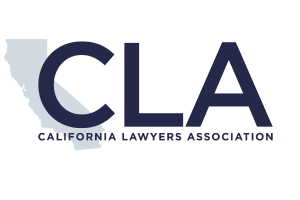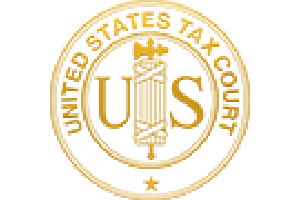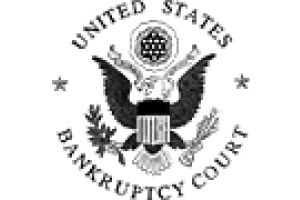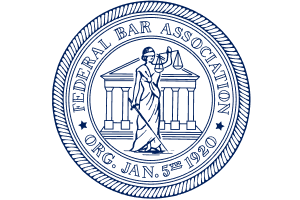Getting Results
Defending Tax Preparers & CPAs – 26 U.S.C. §6694
Defending Tax Preparers Facing Complaints Under 26 U.S.C. § 6694 and Injunctions Under 26 U.S.C. § 7407.
When the U.S. government and the Internal Revenue Service (IRS), files a complaint alleging violations of 26 U.S.C. § 6694, which addresses penalties for understatements of tax liability due to unreasonable positions or willful/reckless conduct, CPAs or tax preparers’ license may be in jeopardy. In severe reckless tax filing cases, such complaint may escalate to requests for injunctions under 26 U.S.C. § 7407, potentially barring a tax preparer from practicing. For tax preparers facing such allegations, a civil and criminal tax defense is essential to protect their livelihood and reputation. Key tax preparation considerations and tax legal strategies for defending tax preparers in these high-stakes cases requires experienced tax attorneys.
Tax preparers and CPAs continue to face heightened scrutiny from the Internal Revenue Service (IRS) amid ongoing efforts to combat fraudulent tax practices. The statute divides penalties into two main categories:
- Understatement Due to Unreasonable Positions (§ 6694(a)): A preparer faces a penalty of the greater of $1,000 or 50% of the income derived from the return if they take a position without substantial authority (or a reasonable basis if disclosed, or a “more likely than not” standard for tax shelters). No penalty applies if there is reasonable cause and good faith.
- Understatement Due to Willful or Reckless Conduct (§ 6694(b)): For willful attempts to understate liability or reckless disregard of rules, the penalty is the greater of $5,000 or 75% of the derived income. This is reduced by any § 6694(a) penalty paid.
The section also includes provisions for extending collection periods if the preparer pays 15% of the penalty and challenges it in district court. These penalties can stem from isolated errors or patterns, often uncovered during IRS audits or investigations.
Recent IRS guidance emphasizes due diligence, with penalties frequently assessed in cases involving overstated deductions, fabricated credits, or abusive schemes.
For instance, in employment tax contexts, preparers have been penalized for understatements related to improper classifications or credits.
Injunctions Under 26 U.S.C. § 7407:
If the IRS deems a preparer’s conduct egregious or recurrent, it may seek an injunction under § 7407 to enjoin specific behaviors or bar the preparer entirely from tax preparation. The court may grant relief if it finds:
- Engagement in conduct penalized under § 6694, § 6695, or criminal provisions.
- Misrepresentation of credentials, guarantees of refunds, or other fraudulent acts interfering with tax administration.
Injunctions are authorized if necessary to prevent recurrence, with broader bars possible for repeated violations. Actions are filed in federal district court, often at the preparer’s or taxpayer’s residence.
Through present day, no major amendments have altered these tax enforcement sections since 2007, when the scope expanded from “income tax” to all “tax return” preparers.
However, enforcement remains vigorous, as seen in recent cases. Recent Court Cases Highlighting Enforcement and Defenses. IRS complaints under these sections often involve allegations of systematic fraud, such as fabricating refunds or promoting shelters. Key recent examples include:
- United States v. Villanueva (ongoing as of search): The DOJ alleged repeated preparation of fraudulent returns understating liabilities, seeking a § 7407 injunction based on § 6694 violations. United States v. Paula Olivett: Involved conduct subject to § 6694 penalties, leading to an injunction request under § 7407 for interfering with tax administration.
- Michigan District Court Cases (2022-2023): In one 2023 case, the court issued injunctions against preparers for § 6694(a) and (b) violations, including reckless disregard in return preparation. Another emphasized the court’s authority under § 7407 to prohibit misconduct.
- Florida Case (2018, with ongoing implications): Default judgment led to injunctions for § 6694 and § 6695 penalties, barring the preparer from practice.
- Successful Defense in United States v. Stenline (2011, still cited): A rare case where the government failed to secure a permanent injunction, highlighting that courts may deny broad relief if violations are not deemed continual or if remedial actions are shown.
- Connecticut Case (Buddhu): Established § 6694(a) penalties for understated liabilities, resulting in injunctions.
- CRAT Tax Shelter Case (2022): Involved promoters barred under §§ 7402 and 7407 for § 6694-related conduct in abusive trusts.
26 U.S.C. § 6694: Under 26 U.S.C. § 6694, tax preparers may face penalties for understating a taxpayer’s liability due to:
- Unreasonable Positions (§ 6694(a)): Taking a position on a tax return that lacks a “reasonable basis” or fails to meet the appropriate standard of care (e.g., substantial authority for non-disclosed positions or reasonable basis for disclosed positions).
- Willful or Reckless Conduct (§ 6694(b)): Willfully understating tax liability or recklessly disregarding IRS rules and regulations.
Penalties under § 6694 can include monetary fines—$1,000 per violation under § 6694(a) or $5,000 per violation under § 6694(b)—and, in severe cases, referral for further action, such as an injunction under § 7407. The IRS may initiate a complaint based on patterns of non-compliance, such as repeated errors, failure to exercise due diligence, or promoting abusive tax schemes.Injunctions Under 26 U.S.C. § 7407. When the IRS believes a tax preparer’s conduct is egregious or habitual, it may seek an injunction under 26 U.S.C. § 7407 to prohibit the preparer from continuing to prepare tax returns or engaging in specific prohibited conduct. An injunction may be sought if the preparer:
- Engages in conduct subject to penalty under § 6694 or other tax-related violations.
- Misrepresents their credentials or eligibility to practice.
- Guarantees tax refunds or engages in fraudulent practices.
- Continues such conduct despite prior penalties, indicating a likelihood of recurrence.
An injunction can range from narrowly tailored restrictions (e.g., prohibiting specific practices) to a complete bar on preparing tax returns, effectively ending a preparer’s career. Given the severity of this remedy, defending against such actions requires a strategic and proactive approach.
Building a Strong Defense: Defending a tax preparer facing a § 6694 complaint and a potential § 7407 injunction demands a comprehensive strategy tailored to the specific allegations.
- Thorough Case Review and Evidence Gathering
We analyze whether the preparer’s actions met the required standards of care under IRS regulations, such as the “reasonable basis” standard or the due diligence requirements under Treasury Circular 230. Gathering evidence, including client communications, workpapers, and research supporting tax positions, is critical to demonstrating compliance or good-faith efforts. - Challenging the IRS’s Allegations
The IRS must prove that the preparer’s conduct violated § 6694 and warrants an injunction. We challenge the government’s case by:- Disputing Unreasonable Position Claims: Demonstrating that the tax positions had a reasonable basis, supported by legal authority (e.g., statutes, regulations, or case law). Disclosure of positions on the return, where applicable, can lower the threshold for compliance.
- Refuting Willful or Reckless Conduct: Showing that any errors were unintentional, isolated, or resulted from complex or ambiguous tax law rather than willful disregard.
- Questioning Patterns of Conduct: For injunctions under § 7407, the IRS must show a likelihood of continued violations. We counter this by highlighting remedial actions, such as additional training or revised procedures, to demonstrate the preparer’s commitment to compliance.
- Leveraging Due Diligence and Good Faith
Tax preparers are not expected to guarantee perfection but to exercise reasonable care. We emphasize the preparer’s adherence to due diligence standards, such as verifying client-provided information, maintaining proper documentation, and consulting relevant tax authorities. Evidence of good-faith reliance on client data or professional judgment can mitigate allegations of recklessness or willfulness. - Negotiating with the IRS
In some cases, resolving the complaint without litigation is possible. We engage with IRS counsel to negotiate settlements, such as consent agreements that impose specific compliance measures without banning the preparer from practice. This approach can preserve the preparer’s ability to work while addressing the IRS’s concerns. - Litigation and Court Defense
If the IRS pursues an injunction, the case may proceed to federal court. Our experienced litigators prepare a robust defense, challenging the IRS’s evidence, presenting expert testimony on tax law compliance, and arguing against the necessity or scope of an injunction. We also explore procedural defenses, such as improper notice or statute of limitations issues, to protect our clients’ rights.
We understand the stakes for tax preparers facing IRS complaints. Our team of seasoned tax attorneys combine deep knowledge of tax law with aggressive defense strategies to protect your professional reputation and livelihood. We have successfully represented tax preparers in complex IRS disputes, including defending against § 6694 penalties and § 7407 injunctions.
Our approach is client-focused, ensuring personalized representation tailored to the alleged tax preparation misconduct. By thoroughly analyzing the IRS’s allegations and the underlying tax returns, a strong factual and legal defense can be demonstrated showing proper tax compliance leading to protection and proper defense of your tax practice. You can contact us to discuss your case further if you have been served with a federal complaint or received a notification for an interview with the IRS. (310 788-9820.





















